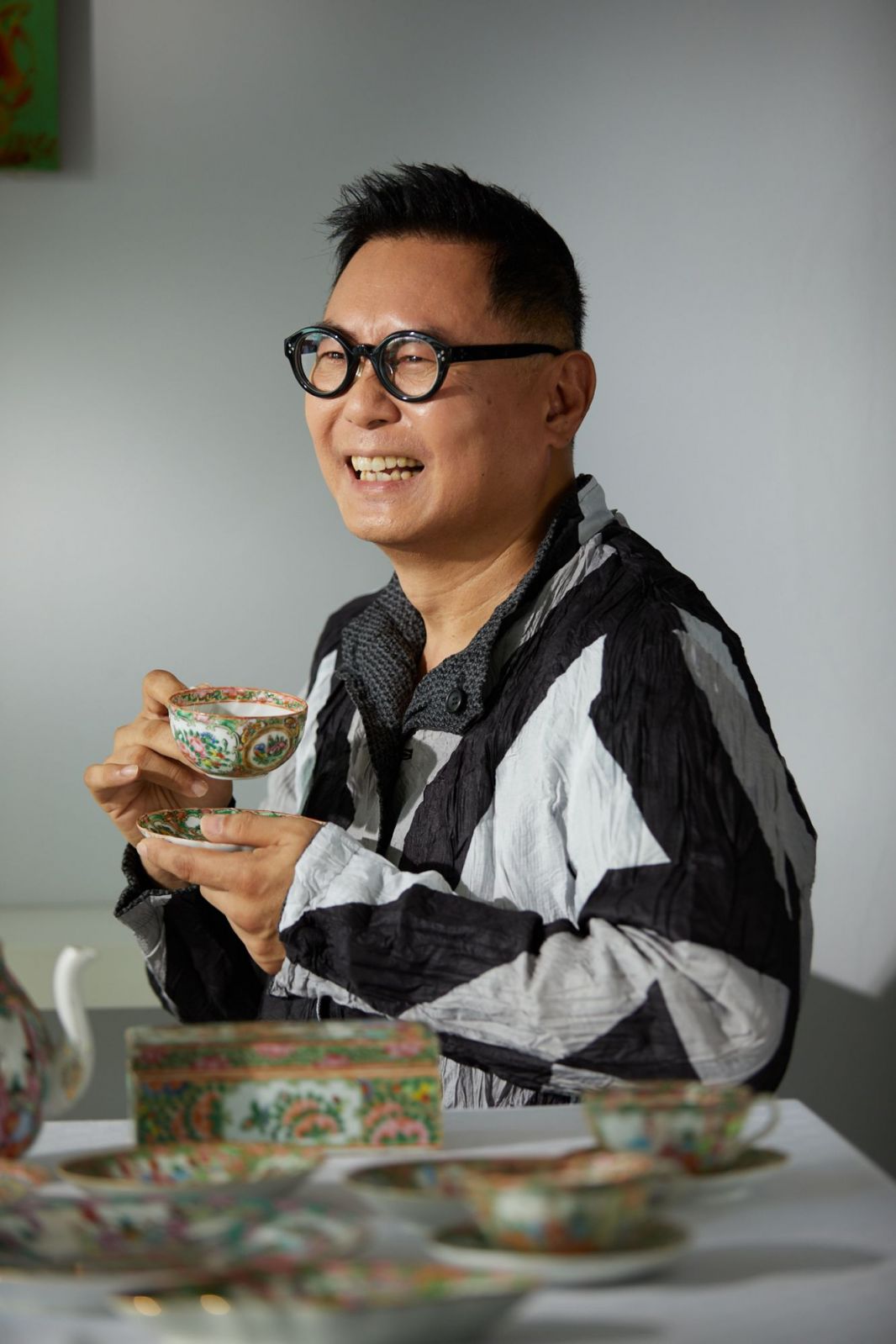David Yip, the experienced chef, journalist and restaurateur, finds pride in sharing his culinary knowledge with some of the most promising chefs in the region
I always know when David Yip is in the room. There is his eye-catching style, which often includes a statement bag and a pair of unique glasses, which he rotates from a collection. His laugh is boisterous and contagious. And if you manage to sit down and speak with him, you might catch a glimpse of his brutal honesty. Just ask him what he thinks of the state of Chinese cooking in Singapore (“the standard is nowhere near acceptable”) or his honest thoughts on restaurants (“I’ve never liked [LG Han’s] food up till today”). All spoken with affection and a biting sense of humour, of course.
It’s an outsized presence that extends far beyond any physical space; his influence reverberates throughout the dining scene. As a publisher, he is known for launching the careers of famous chefs today through their cookbooks. As a chef and restaurateur, he has helmed restaurants across Singapore and Hong Kong, where he became known for his exacting traditional Chinese technique. Now, Yip keeps his finger on the pulse by teaching Asia’s next generation of chefs the principles of traditional technique and flavour. Among those who get to call themselves disciples (or tu di in Mandarin) are Xu Jingye of 102 House in Shanghai, Agustin Balbi of Andō in Hong Kong, and yes, LG Han of Labyrinth.
Don’t miss: The best Cantonese restaurants in Singapore, according to restaurateur David Yip

“I don’t think we ever saw eye-to-eye on flavours,” Han tells me, citing the clash between Yip’s clean palate and his strongly flavoured brand of modern Singaporean cuisine. (“I always joke with him,” he adds, “whenever I serve him a dish that’s clean, I say, ‘David, I’m sure you’ll like this dish. It’s bland!’) For Han, it’s more about “using David's knowledge to help refine [his] flavours further”. In fact, every single chef I speak to for this profile reiterates the same thing: the biggest lesson they learnt from Yip was how to layer flavours within a dish and throughout the meal.
“All chefs can make tasty food, but if you want to cook food with multiple layers, you must understand the ingredients,” Yip says. Take sugar, for instance; a dash of it in soup helps to create layers, but you also have to understand how sugar in its various forms—raw, caramelised, in a syrup—changes the flavour. It even comes down to the precise sequence and timing of adding ingredients, seemingly imperceptible details that can, in fact, change a dish entirely.


